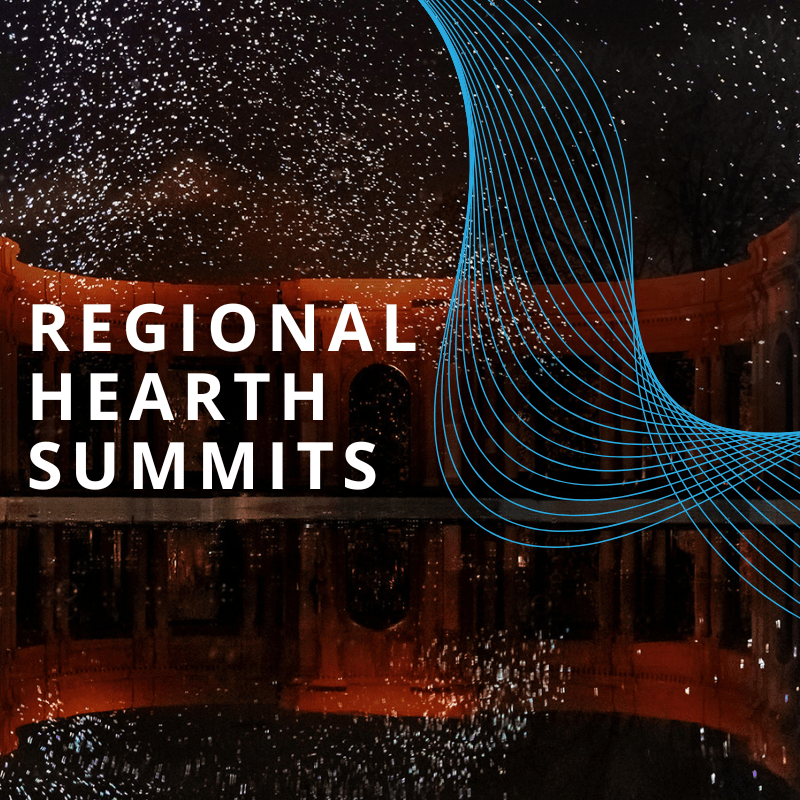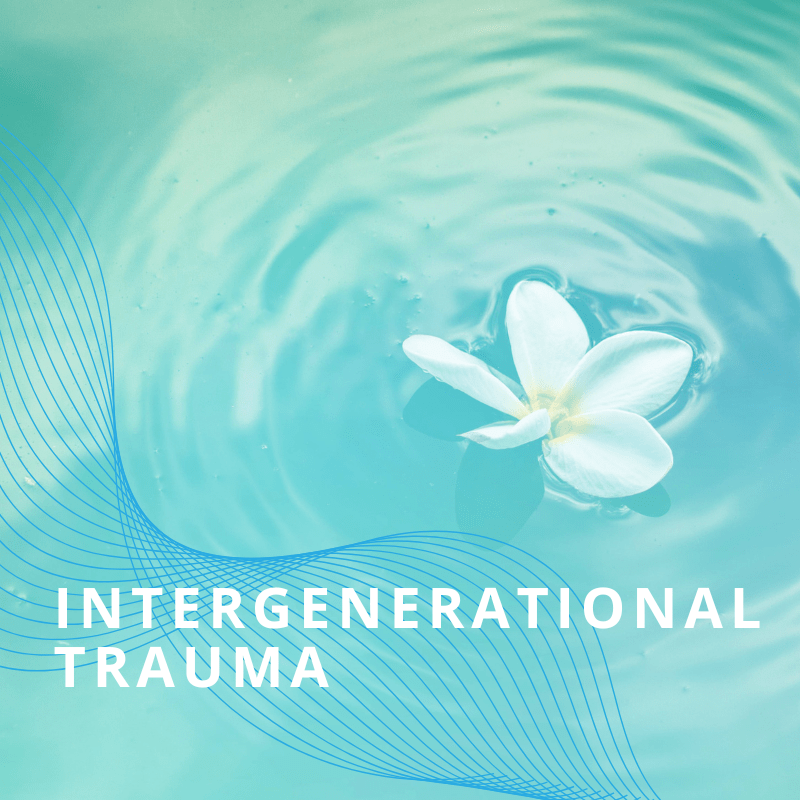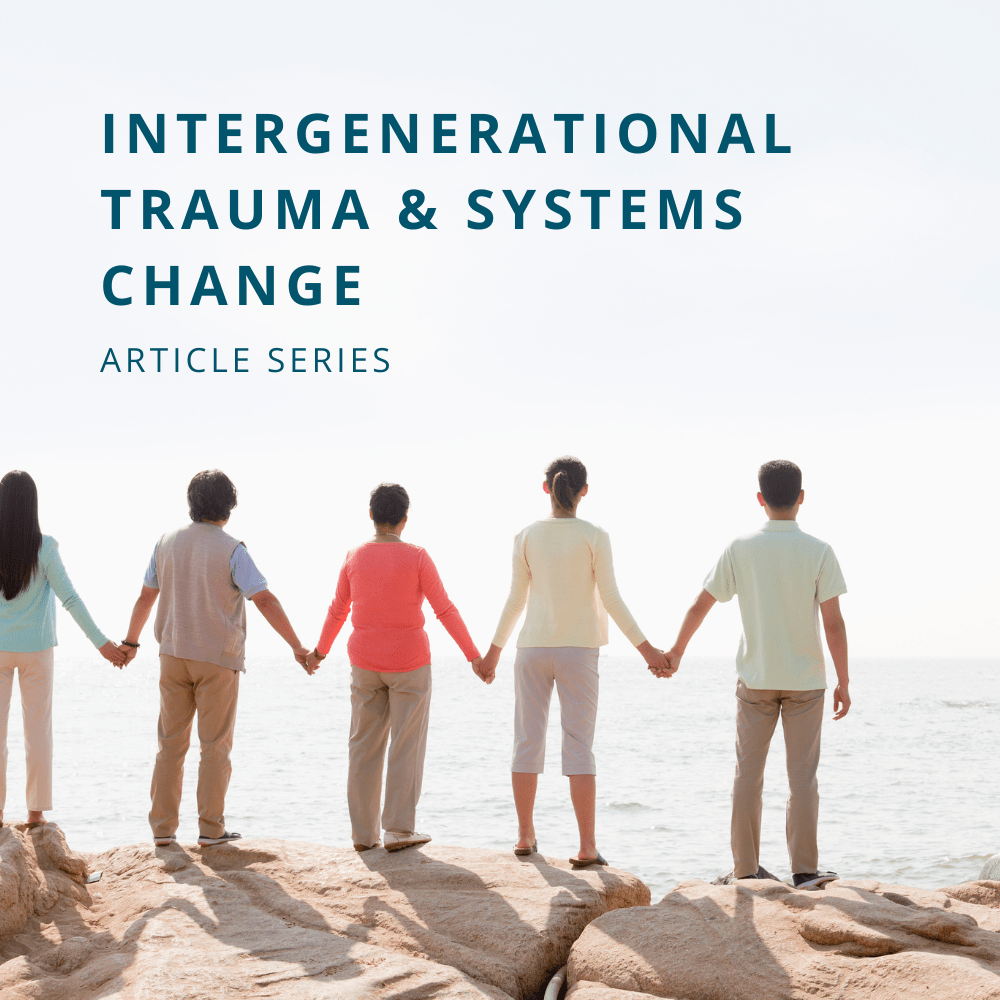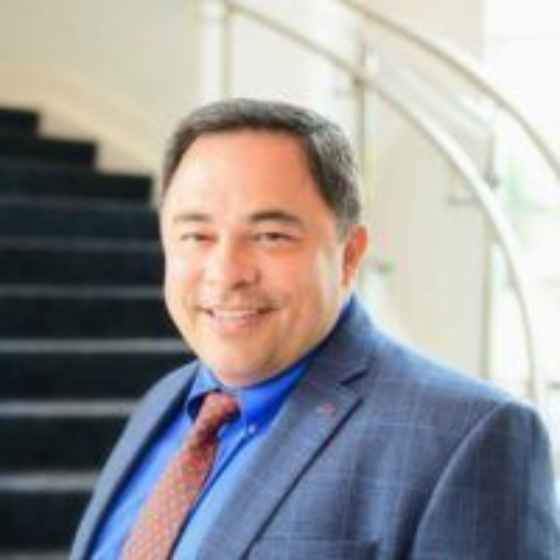
Interconnected Healing From Intergenerational Trauma Interconnected Healing From Intergenerational Trauma
Healing x Regional Hearth Summits
With a growing collective consciousness about the impacts of intergenerational trauma, the regional Hearth Summits are a space for changemakers to explore those impacts in the social change sector. In social change work, trauma can be found at the roots of the biggest challenges facing the world today—and in the lives of the people working to address them. Trauma-informed approaches to social change have the power to help unlock healing, wellbeing, and social transformation for all. The regional Hearth Summits offer an invitation for local communities of changemakers to explore this power, contributing to our global call to move from cycles of trauma to journeys of wellbeing.
Discover how the Hearth Summits’ deep conversations, moving art performances, and embodied workshops create a platform for us to encourage healing and wellbeing for everyone—everywhere.
COLLECTIVE HEALING FOR SYSTEMIC CHANGE COLLECTIVE HEALING FOR SYSTEMIC CHANGE
“It’s when we start working together that the real healing takes place.”
David Hume

Opening a Dialogue on Intergenerational Trauma
Research From the Being and Transforming Think Tank
In Brussels, The Wellbeing Project launched the first part of “Cycles of Trauma and Journeys of Wellbeing: A Framework for Trauma-Informed Practices and Positive Social Change” — the first co-creation from the Being and Transforming Think Tank’s 3-year exploration of intergenerational trauma and social change. The research was published on the Think Tank’s brand-new hub for research, stories, tools, and other resources about IGT and trauma-informed social change work. Changemakers are invited to explore the database of resources and add to it.
Intergenerational Trauma, Ancestry, and Race | Trauma Intergeracional, Ancestralidade e Raça
Session From Hearth Summit São Paulo
In São Paulo, Raquel Barros, Coordinator, Emotional Collaboration Laboratory (ENLACE) and the Possible Worlds Community Extension Program, FACENS University, and Isabel Santos Mayer, Coordinator, Brazilian Institute of Studies and Community Support (IBEAC), joined in a conversation on intergenerational trauma, ancestry, and race in Brazil. Watch the session (in Portuguese).
Katherine Milligan, Director of the Collective Change Lab, educated changemakers on the basics of trauma’s physiological effects on the body, including how the central nervous system initiates the fight-flight-freeze response, and leading changemakers in embodied practices.
Shawan Mahmud, daughter of intellectual martyr Altaf Mahmud, touched souls with her tale of healing from intergenerational trauma in the aftermath of the 1971 Bangladesh Liberation War, calling for accessible mental health services to support all who struggle with the ongoing impacts of the war.
Human rights activist and political refugee Marguerite Barankitse shared her inner and outer journey of peacebuilding after surviving ethnic cleansing campaigns in her home country of Burundi and starting an organization, Maison Shalom, to care for orphaned children.
Psychologist Edgar Gonzalez-Hernandez hosted a workshop on Compassion-Based Cognitive Therapy for participants in Bogotá in a session on how to recognize and start healing from trauma through an evidence-based approach.
Wellbeing Is Community, Resilience, and Inclusion
Interview With Okong’o Kinyanjui
In this interview at the first regional Hearth Summit in Nairobi, meet Okong’o Kinyanjui, Founder and Executive Director of the Queer African Network, as he shares how wellbeing inspires welldoing in his work to support the queer Pan-African community, whose wellbeing continues to be impacted by colonial-era penal codes across Africa.


Mapping the Impacts of Colonialism in Latin America
Workshop with Dr. Laura Calderon de la Barca
In Bogotá, psychotherapist Dr. Laura Calderon de la Barca, a specialist in collective trauma and senior associate of the Collective Change Lab, led changemakers in a reflection mapping the ongoing impacts of colonial history in Latin America and the Caribbean. Changemakers identified the parts of society where the trauma of colonialism is still visible as well as where they see opportunities to act for healing. As a group, they saw trauma manifesting the most within gender dynamics, and they saw the biggest window of opportunity for action in the arts.
You can learn more about Dr. de la Barca’s work to raise the collective consciousness around colonial trauma in the region in our recent webinar series with Collective Change Lab on creating healing systems for social change.
Addressing Post-Genocide Trauma in Rwanda
INTERVIEW WITH DR JEAN BOSCO NIYONZIMA
Director and Executive Founder of the Ubuntu Center for Peace, Dr. Jean Bosco Niyonzima, spoke at The Wellbeing Summit Dakar-Thiès about the impact of intergenerational trauma in Rwanda, where more than 50% of genocide survivors live with mental health disorders like depression. Listen to this brief interview with Voice of America to hear about his approach to mobilizing an integrated, scalable, cost-effective, community-based social healing model across Africa.
In Nairobi, co-chair Honorable Justice Martha K. Koome, EGH explored justice as a shared responsibility and lived experience, requiring empowered individuals, accessible courts, and support for the marginalized. Critical issues discussed included addressing the overrepresentation of people with disabilities in prisons, reducing stigma, and decolonizing the justice system to promote restorative justice.
In Senegal, Safe Open Spaces (SOS) hosted small group sessions to promote emotional expression, active listening, and empathy among changemakers. Focusing on youth mental health, the SOS workshop offered practical skills to young changemakers to use for healing and personal growth.
The intergenerational wellbeing panel in Nairobi, chaired and moderated by Edwin Macharia, explored how individuals, families, and communities are interconnected and shape our collective ecosystem. The session explored how traditional methods can address community trauma and bridge generational gaps by preserving cultural knowledge and fostering overall wellbeing.
Healing From Trauma: The Leadership Skill You Didn’t Know You Needed
INTERVIEW WITH BENOIT LEGRAND
Leaders face challenges every day when managing teams and making decisions. But visionary business leader-turned-psychogenealogist Benoît Legrand says the biggest challenge can actually be an internal one. Hear from Benoît, who spoke about the impacts of intergenerational trauma in leadership and organizational wellbeing at The Wellbeing Summit Brussels, reflect on why leaders should prioritize their wellbeing and healing to be a positive presence for themselves, their teams, and their organizations.
PROCESSING TRAUMA AND HEALING THROUGH THE ARTSPROCESSING TRAUMA AND HEALING THROUGH THE ARTS
“At the deepest level, the creative process and the healing process arise from a single source.
When you are an artist, you are a healer.”
Rachel Naomi Remen
“Tears Ain’t Nothing But Liquid Prayers”
Poetry by Hannah L. Drake
Author, poet, and activist Hannah L. Drake stirred the emotions of her audience at The Wellbeing Summit Omega Institute-Harlem Wellness Center with her poem “Home,” a rebuttal to the state song of Kentucky (where she is from), “My Old Kentucky Home.”
Brilliante Aurora
Music by Oro y Platino
The alabaos are traditional Afro-Colombian funeral songs used to express and share grief and mourning that have been passed down generation to generation. Enjoy this song performed by Oro Y Platino, a group from the Condoto Chocó region of Colombia, who also took to the stage at The Wellbeing Summit Bogotá. All alabaos songs help people to say goodbye to their beloved. “Brillante Aurora” is about saying goodbye to a mother — with the song lyrics, they say goodbye to the Virgin Mary.
The Healing Power of MusicThe Healing Power of Music
MUSIC BY ASIF IQBAL AONTU
At The Wellbeing Summit Dhaka, we discovered musician and journalist Asif Iqbal Aontu’s extraordinary journey from imprisonment to musical soul healing. Through his music, he shares how his toughest experiences led him to a new direction, blending music with cosmic thoughts. With each song, he skillfully intertwines life’s tragedies, pains, and afflictions into a harmonious tapestry.
EXPLORE HEALING AND WELLBEING FURTHER EXPLORE HEALING AND WELLBEING FURTHER
Dive Into Research, News, and Stories on Intergenerational Trauma

Hearth Summit Higher Ed 2024 Hearth Summit Higher Ed 2024
Regional Hearth Summits
About the Summit
Rooting Ecological Belonging in Higher Education
Educators, administrators, researchers, and other higher education professionals: the Hearth Summit is where a new culture of education emerges!
In July 2024, members of our Wellbeing in Higher Education Network (WHEN) gathered in Querétaro, México, for a four-day experience diving deep into the concept of Ecological Belonging. Changemakers in education fostered a sense of connection with themselves, their community, and nature in this intimate environment dedicated to transforming higher education and reconnecting it with the Earth. In this space, peers gathered to share ideas, learn from each other, and grow throughout transformative discussions, hands-on workshops, and immersive cultural excursions. The arts and wellbeing practices provided moments for inner work and personal reflection — weaving together individual, collective, and planetary wellbeing.
WHERE WELLBEING IN EDUCATION BLOSSOMS WHERE WELLBEING IN EDUCATION BLOSSOMS
KEY PROGRAM HIGHLIGHTS
The four-day gatherings took educators on a holistic journey of Ecological Belonging, exploring the topic through conceptual, methodological, and experiential means:
Understanding Ecological Belonging and its many dimensions in higher education
Local roots: Ecological Belonging through the lens of Mexican rituals and cultures
Intergenerational wisdom and lessons from Elders
Mindful, conscious tourism and experiences
Insights from the Ecological Belonging Fellowship
The arts as an space to explore, learn, and ideate
Case studies from WHEN members: effective methodologies for bringing Ecological Belonging to life

Embracing and Celebrating Mexican Heritage
WITH THE Otomí COMMUNITY
Throughout the Summit, members of the Indigenous Otomí community invited changemakers to discover the vibrant cultural heritage of Querétaro and the surrounding area. During a day excursion to Amealco de Bonfil, participants were greeted with an emblematic ritual from the region, the “Danza de las Pastoras”, a dance to greet, ask, thank and share offerings. A workshop with medicinal plants illustrated the Otomí people’s traditional use of plants, honoring the memory of their first methods of healing to cure the enxe (soul). Changemakers also took time to create lele dolls, an iconic symbol of Mexico’s Indigenous heritage. Meaning baby in Otomí, the lele holds a special meaning for the Indigenous community, representing the blending of different traditions and the resilience of the Otomí people.
Learning From Elders Learning From Elders
Watch sessions with two Elders from The Wellbeing Project’s Wellbeing in Higher Education Network.
Papalii Dr. Tusi Avegalio
On Intergenerational Leadership and Education
In this inspiring talk, Papalii Dr. Tusi Avegalio, innovation expert and retired director of the Pacific Business Center Program at the University of Hawai’i – Manoa, shares his invaluable intergenerational wisdom and vision for the future such: the power of ancestral wisdom to meet contemporary challenges; how Pacific community values can guide innovation and entrepreneurship; deep reflections on intergenerational leadership in times of change; and strategies to boost community wellbeing through education and research.
Nilima Bhat
On Conscious Leadership
Are you ready to discover a new model of conscious and balanced leadership? In this session , Nilima Bhat, distinguished professor and expert in conscious leadership, introduces us to the concept of Shakti Leadership: a powerful fusion of ancient Indian wisdom and emerging knowledge. Learn about the essence of Shakti Leadership, which balances feminine and masculine energies in leadership, and how practices like mindfulness can strengthen your leadership and daily wellbeing.
Key Speakers and PresentersKey Speakers and Presenters
MORE REGIONAL SUMMITS MORE REGIONAL SUMMITS
Discover the Wellbeing Movement in Higher Education Discover the Wellbeing Movement in Higher Education
Meet and hear stories from the changemakers championing the wellbeing movement in higher education.
Grateful: A Journal Reflection on The Wellbeing Project’s Ecosystem Network Grateful: A Journal Reflection on The Wellbeing Project’s Ecosystem Network
Grateful.
In so many ways, this word embodies my feelings and thoughts toward The Wellbeing Project’s Ecosystem Network.
My colleague, Kyla Carlsen, and I joined the Ecosystem Network in September of 2022. Though we joined this community of passionate, thoughtful, and dedicated changemakers for a short amount of time compared to when the network first begun, never did I once feel like an intruder.
From the beginning, we were greeted with such warmth and open arms that I knew virtually attending the Wellbeing Forums would be calls that I would eagerly anticipate every quarter. It did not take long for me to be captivated by the illumination of the Ecosystem Network because of the caring people creating and holding this space for changemakers to connect in such an intentional and authentic way.
One of the things I admired most about the network was the way this space was held for members to connect. I don’t ever recall joining a session where we immediately rushed into business or the tasks at hand. Instead, we were encouraged to participate in a collective grounding exercise or share how we were showing up in the space on that day. Taking this intentional pause to get grounded or share how we were honestly feeling was so astonishing to me.

Often in the nonprofit sector, we are hurrying through the day moving from one task or meeting to the next. This simple yet meaningful practice opened my eyes to how I could interact with my colleagues and facilitate meetings within my work differently. While meeting with members of the Collective Leaders Learning Circle program hosted by Co.act Detroit (pictured above), I was able to support with leading wellness practices for our group during some of our convenings. I felt confident to lead these practices thanks to my interactions and experience with members in the Ecosystem Network.
As a participant in this network, I loved being able to connect with other changemakers around the world. It was inspiring to hear about the work others were engaged in and the way they passionately served their communities. I still recall being amazed by Marlize Swanepowel’s presentation on the work she and her team does at Sp(i)eel concerning intergenerational trauma. Being able to connect with others over important and universal topics has made this experience such an insightful one.
One of my favorite gatherings as part of this network was when Anubha Agarwal of The Wellbeing Project shared findings from the Organizational Exploratory Program (OEP). This session resonated with me so deeply because one part of my work at Co.act is to lead our Nonprofit Wellbeing Series, which uplifts the vital connection between self and community care in the nonprofit community. To have the opportunity to hear about another’s wellbeing program and the lessons that have emerged was one I did not take for granted. I appreciated her transparency and that I was able to share some of the similar themes I saw in my work as well. Experiences like these continue to remind me why having collective space for people to convene and share is important.
As bittersweet as it is to say, “farewell” to the Ecosystem Network, I am grateful that there are still spaces for us to connect under The Wellbeing Project, such as through the Inner Wellbeing for Social Change group. To find ourselves in nourishing networks or spaces rooted in community and connectivity that are handled with so much care is something I treasure deeply. It is what I will miss most about the Ecosystem Network. While every beginning has an ending, I am grateful that the spirit of the Ecosystem Network will live on across the work of The Wellbeing Project and through the mindful practices and resources of its members. I have found so much joy, understanding, and inspiration from being a part of this community that I am forever changed and eternally grateful.
About The Author About The Author

Meet Charnae Sanders
Charnae Sanders, a devoted community advocate and Program Manager at Co.act Detroit, is deeply committed to fostering connections and empowering individuals. Her dedication to community development in her hometown of Detroit is evident through her work in curating impactful programs and events, including the Nonprofit Wellbeing Series. As a passionate contributor to the Rest and Liberation Initiative, she actively promotes holistic wellbeing and empowerment, particularly within BIPOC communities.
Charnae’s active involvement in various professional initiatives, such as the Young Nonprofit Professionals Network of Detroit and The Social Innovation Forum’s Community Organizations Reimagining Ecosystem (CORE) cohort, reflects her continuous efforts in promoting growth and leadership development. Her diverse experiences, including her time with the Challenge Detroit fellowship program and The Black Healing Justice Project, have further enriched her understanding of social impact and community engagement.
Prior to her role at Co.act Detroit, Charnae served as the Public Programs Coordinator at the Detroit Historical Society, utilizing her background in journalism from Central Michigan University. Her passion for writing and poetry has led to publications in renowned outlets such as the Wall Street Journal and Detroit Free Press. In her leisure time, she finds joy in writing, traveling, and experiencing the vibrant culture of her beloved city.

TWBS Omega Institute & Harlem Wellness Center TWBS Omega Institute & Harlem Wellness Center
Join the Global Wellbeing Movement

ABOUT THE SUMMITABOUT THE SUMMIT

WHEN September 4 – 8, 2023 WHERE Omega Institute Campus, New York LANGUAGE Hosted in English
This Wellbeing Summit – a partnership between Omega Institute and Harlem Wellness Center – brought together over 150 social change, governmental, arts, and business leaders with the collective intention to advance wellbeing for those on the frontlines of social change. Together, delegates delved into profound themes of collective wellbeing, personal and systemic change, connection, interdependence with each other and the planet we inhabit, and the power of creativity – celebrating the idea that we are all part of a greater whole.
The Wellbeing Summit Omega Institute & Harlem Wellness Center was host to:
- 150 attendees spanning diverse backgrounds, including geographic locations, professional sectors, generations, racial/ethnic identities, and gender identities
- 52 award-winning, dynamic, powerful, and revolutionary speakers, artists, and performers
- A community of activists, wellness practitioners, healers, spiritual leaders, philanthropists, educators, storytellers, and catalyzing changemakers
- A 56% attendance of BIPOC delegates, presenters, performers, and artists
- A 30% attendance of men and nonbinary delegates, presenters, performers, and artists who were welcomed in a women-centering space
The Summit provided an opportunity to build relationships, enhance collaboration and innovation, and engage in transformative experiences in an environment of joy, care, and mutual understanding. Activities included:
- Inspiring talks and panel discussions that presented multiple perspectives
- Workshops that offered tools to take meaningful action
- Leadership frameworks to guide delegates through a multi-tiered exploration of their own leadership journey
- Art and art making that engaged wellbeing from the emotional and intellectual language of the arts
- Learning from Omega’s award-winning Center for Sustainable Living and Eco Machine™, which demonstrated what’s possible through regenerative design
- Opportunities to be in nature–gardens, forest, and lakefront, and wellness activities including daily classes in meditation, yoga, and tai chi
SPEAKERS & ARTISTS INCLUDED: SPEAKERS & ARTISTS INCLUDED:
Monica Aleman * Carrie Barratt * Leslie Booker * Majora Carter * Richard J. Davidson * Liza Donnelly * Hannah Drake * Mallika Dutt * Theo Edmonds * Soffiyah Elijah * Pamela Stokes Eggleston * Soffiyah Elijah * Pumla Gobodo-Madikizela * Carla Goldstein * Andres Gonzalez * Reggie Hubbard * Hudson River Playback Theatre * Deepa Iyer * Jeff W. Jones * Leslie Salmon Jones * Sylvester Jones, Jr. * Amy Kandall * Kerri Kelly * Dan Mack * Rhonda V. Magee *
Anaïs Maviel * Tim McHenry * Donna Mikkelsen * Nathan Moore * Morley * Amina Naru * Brenda Salgado * Sharon Salzberg * Kwame Scruggs * Ali Smith * Atman Smith * Gail Straub * Travis Sullivan * Shelly Tygielski * Sarah Urech * Vivian Williams-Kurutz * Jamia Wilson * Rev. angel Kyodo williams Roshi
EXPLORE VOICES FROM THE SUMMIT EXPLORE VOICES FROM THE SUMMIT
Enjoy talks, articles, and practices from this stellar line-up of speakers.
HOSTED BY HOSTED BY
WORDS FROM OUR DELEGATES
“This powerful event offered a vision for social change and activism that I’ve been speaking about for years.”
Jemarc Axinto, Trauma Recovery Coach & Non-Profit Wellness Consultant at The Spiritual Geek
“The Summit gave me an opportunity to unplug and gather global expertise and strength in my advocacy. I had genuine time to reflect on my goals (both personal and professional) …..and recalibrate the legacy I want to leave in Chicago and across the globe.”
Jamia Jowers, Executive Director of What’s Your Forte Foundation
“…Can we just say, we are beside ourselves to have connected with such an inspiring community of leaders who share a similar vision for the world.”
Molly McConnell and Sierra Brashear, Co-Founders of Cultivate Balance
“It was an honor and pleasure to be in circle, community, interconnection, and big love.”
Mosijila Edu, Holistic Practitioner at Love Energy Services
With special thanks to these generous sponsors, funders, and partners With special thanks to these generous sponsors, funders, and partners
Brandstories, The Daniel W. Dietrich II Foundation, The J.M. McDonald Foundation, The New York Women’s Foundation, The Owsley Brown III Philanthropic Foundation, The Rubin, and The Wellbeing Project
CONTACT INFORMATION
For questions and more information about The Wellbeing Summit
Omega Institute & Harlem Wellness Center please contact OwlcCommunity@eomega.org
MORE REGIONAL SUMMITS MORE REGIONAL SUMMITS
Discover the Wellbeing Movement in North America Discover the Wellbeing Movement in North America
Meet and hear stories from the changemakers championing the wellbeing movement in North America.
Global Grassroots
New Hampshire, United States.
Field of Action: Social change. Women’s Justice. Ecological Belonging.
Ecosystem Network
Since 2006, Global Grassroots has trained more than 700 emerging change agents across East Africa who have designed nearly 200 civil society organizations reaching 198,000 people.
Their inner-driven approach, called Conscious Social Change, results in powerful impacts on our change agents and them, in turn, upon their communities.
When applied to the water sector, this results in significant shifts in health, violence, and education indicators, recording an unprecedented sustainability rate of 96% among water ventures they have funded since 2008, which are serving nearly 78,000 people with access to clean water and hygiene supplies, a critical need during COVID-19. Women belonging to Global Grassroots groups and programs understand systemic change and use their water solutions as sustainable hubs to target a range of other priority local issues affecting women.
When women lead, communities succeed.
Women are the fabric of society, but in impoverished areas, they lack the tools to solve local social issues.”
[/mk_blockquote]Reports & Research
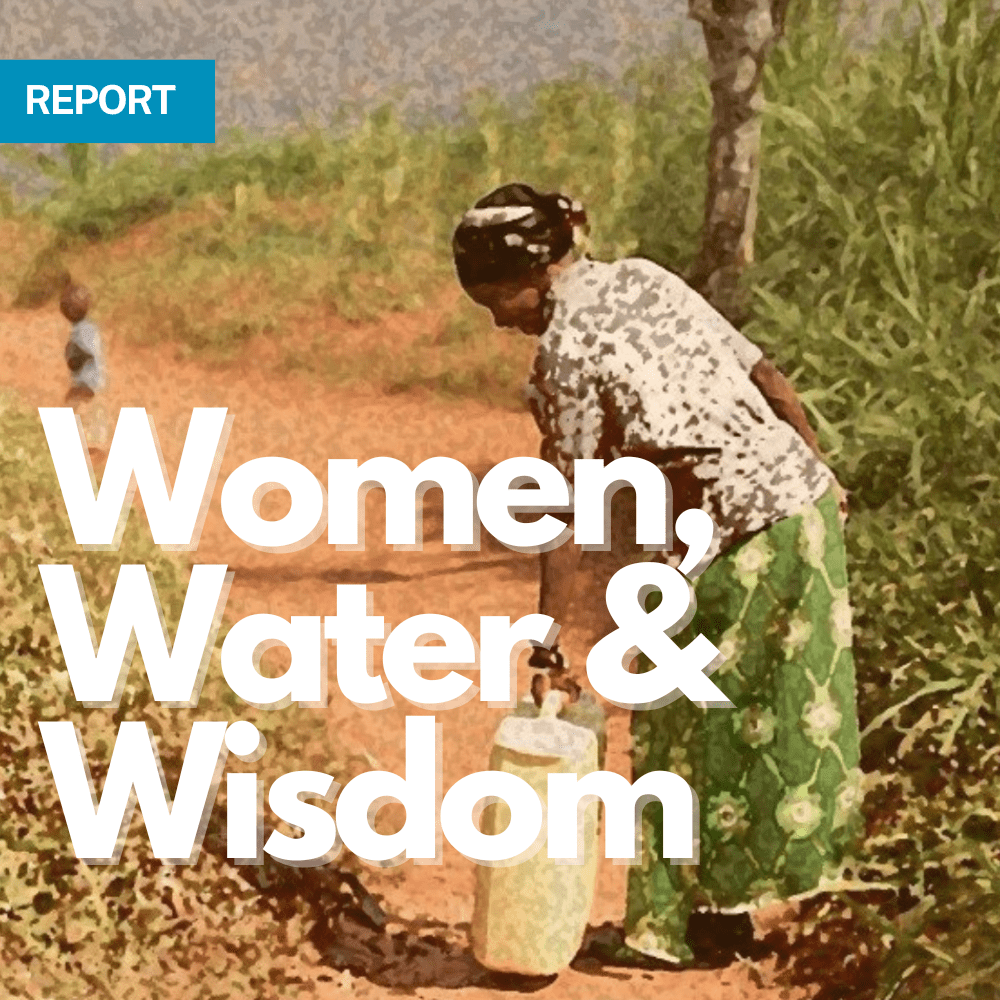
Women, Water & Wisdom: Mapping Ripple Effects of Conscious Social Change in
Rural Rwanda
Have you ever thought about the link between wellbeing and water?
The benefits of clean water go well beyond physical health. In communities where clean water is scarce and has to be fetched on a daily basis, its availability reduced stress and increased safety:
“According to participants, the incidents of injury, violence, and abuse related to fetching water dropped since the new water sites launched, particularly improving the safety of women, girls, and other community members for whom the journey had been dangerous.”
Read the full report to learn more about the power of water and community-led change:
Related Posts

Celina de Sola
Glasswing International
Celina de Sola is co-founder and president at Glasswing International, an El Salvador-based organization that combines community-based initiatives with strategies to strengthen public education and health services. Her work focuses on designing and implementing innovative, community-based initiatives that bring together institutions and people for joint action. Prior to Glasswing, de Sola worked as a crisis interventionist for Latino immigrants in the US and led humanitarian crisis response projects in Liberia, Sudan, Afghanistan, Iraq and Indonesia. She is a Fellow of the Obama Foundation, Ashoka, LEGO ReImagine Learning, Penn Social Impact House. She is also an Audacious Project and Skoll Foundation Awardee, and a Tallberg Global Leader. Celina holds a master’s degree in Public Health from Harvard University and one in Social Work from the University of Pennsylvania’s School of Social Policy and Practice.
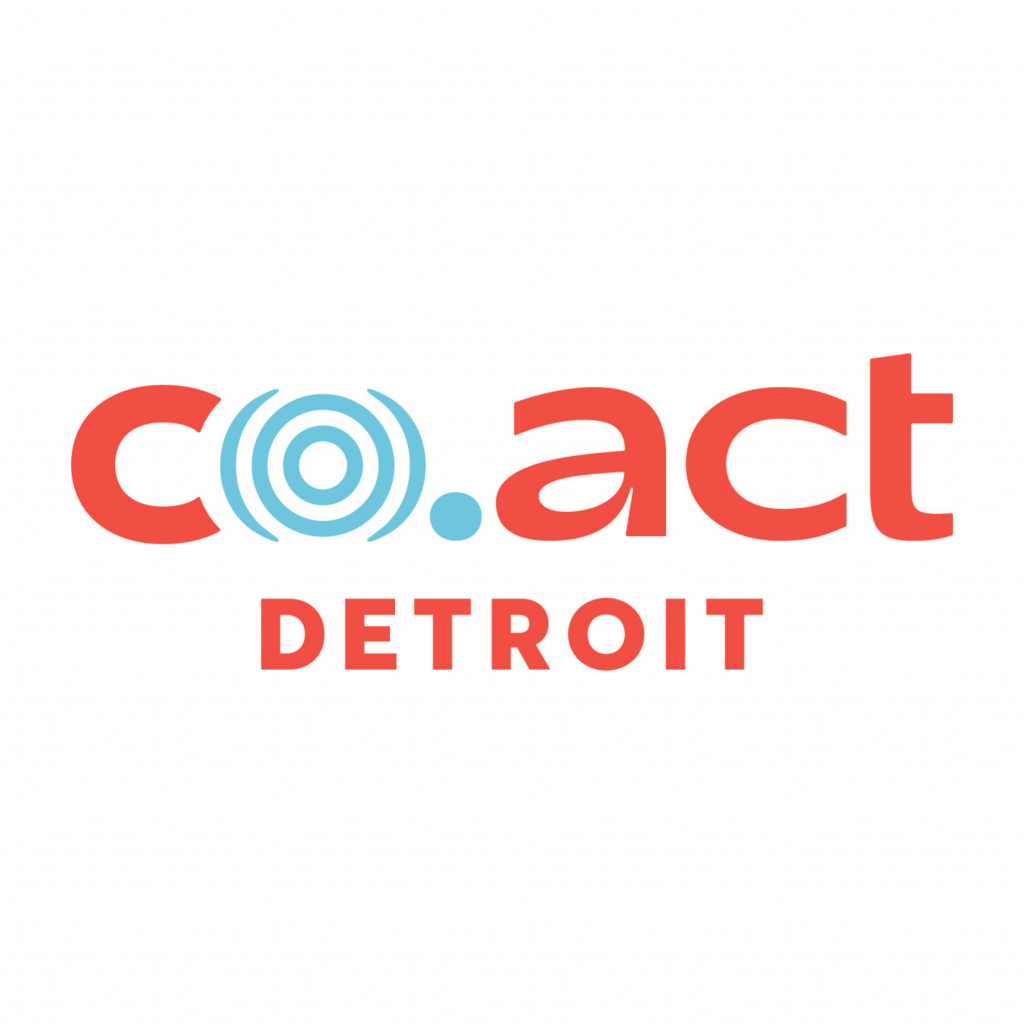
Co.act Detroit
Detroit, Michigan,
United States.
Co.act Detroit is a hub that accelerates transformative impact with nonprofit and community organizations in southeast Michigan through collaborative idea generation, cross-sector resources, and equitable access to world-class programming and learning opportunities.
Co.act Detroit is the home of the Nonprofit Wellbeing series, which celebrates the vital connection between self and community care and pushes for a culture shift around wellbeing at the organization and sector level. Through a quarterly series of workshops, activities, and conversations, we provide access to virtual resources and best practices that equip nonprofit professionals with strategies to support their teams and wellbeing.
Nonprofit mental health and wellbeing is also a frequent topic of conversation in our podcast, Natural Collisions. Past episode topics include creating cultures of wellbeing at work and the impact of the pandemic on women’s careers and the mental health of women in the nonprofit workplace.
Connect to Co.act Detroit on social media :
Webinar: Advancing wellbeing through social prescribing Webinar: Advancing wellbeing through social prescribing
HIGHLIGHTS OF THE CONVERSATION HIGHLIGHTS OF THE CONVERSATION
Wednesday, April 12, 2023
3pm – 4pm ET / 9pm – 10pm CET
Imagine a future where doctors prescribe more than just drugs. Dan Morse (Co-Founder and Founding Director of Social Prescribing USA) and Dr. Ardershir Hashmi (MD, FACP, FNAP is the Endowed Chair of Geriatric Innovation and Section Chief of the Center for Geriatric Medicine at Cleveland Clinic) takes viewers to that future by spotlighting successes of the present — educating the community on the history, evidence base, and practice of social prescribing, with an eye to what other social entrepreneurs, grassroots organizations, universities, governments and healthcare professionals can learn. Julia Hotz (Journalist and author of THE SOCIAL PRESCRIPTION (Simon & Schuster, 2024) will moderate the webinar, and help viewers explore to advance the benefits of social prescribing in their own wellbeing journeys, in the meantime.




